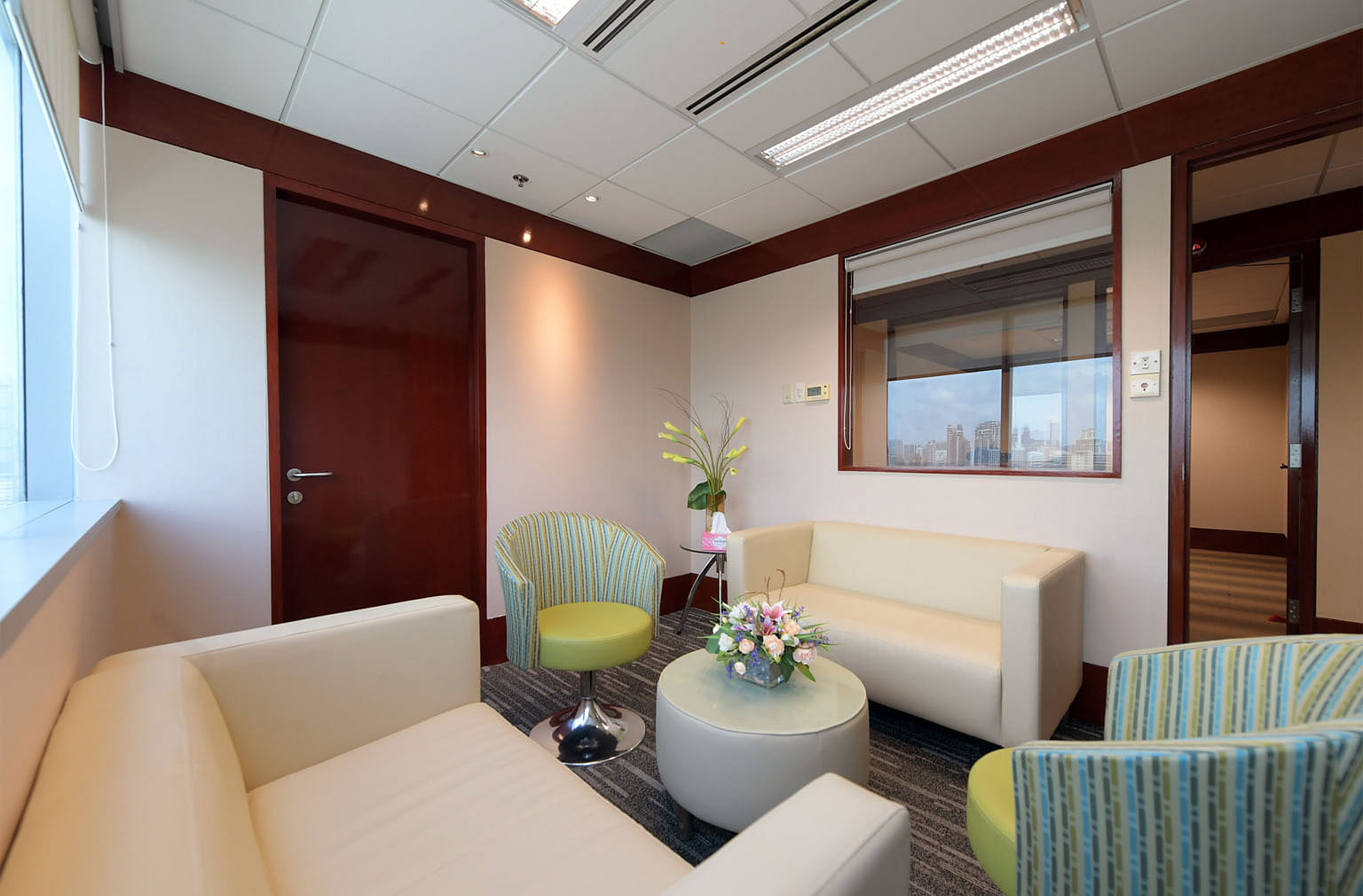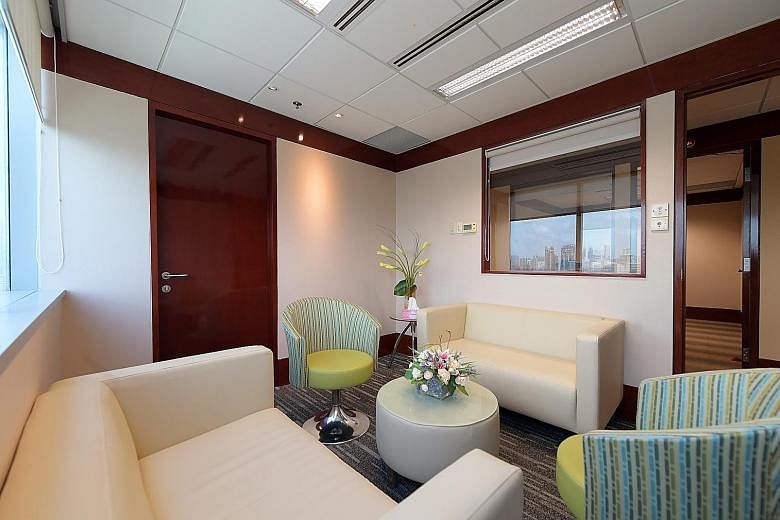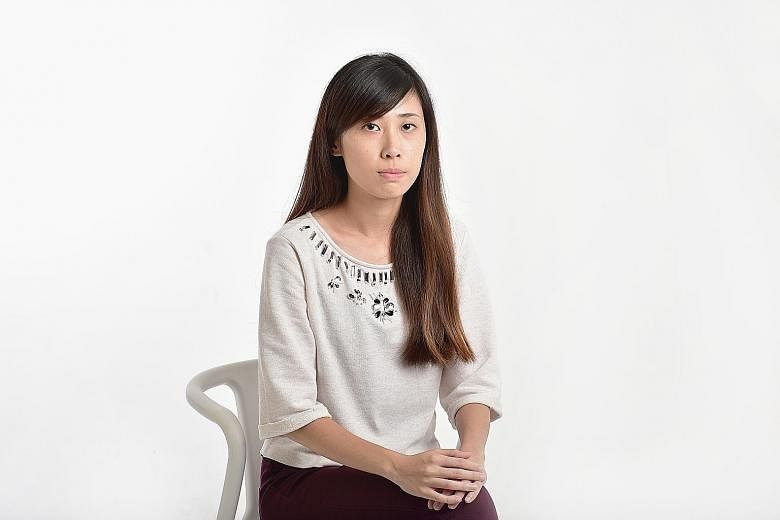It was not easy for Cindy, 22, to tell the police that she had been raped by her boyfriend of almost two years in 2015.
She said she did so last year, after he started "stalking" her and threatening to blackmail her with compromising pictures.
But she was told by a police officer that her chances of getting the perpetrator convicted were low, she said. The officer also gave her examples of how the man could defend himself in court against her evidence, and she left feeling anxious.
Cindy - which is a pseudonym to protect her identity - did not lodge a police report eventually, feeling discouraged after the interview, she told The Straits Times last month.
She decided to reach out to ST after reading about the arrest of a Portuguese man in relation to a molestation report. A widely shared Facebook post about the incident suggested that a police officer had made inappropriate comments to the woman who lodged the report during their interview - and it resonated with Cindy.
Such an experience may not be the norm among the 151 rape cases last year. But many who do not go to the authorities cite similar fears of being disbelieved, or having too little evidence.
A series of initiatives announced by the Ministry of Home Affairs last month are set to make the process of reporting sex crimes, as well as court procedures, less intimidating.
While police investigation officers already receive training in victim care and handling serious sexual offences such as rape, a new training video is to be launched in the third quarter of this year. Made in collaboration with the Association of Women for Action and Research (Aware), it is aimed at sensitising officers to victims' perspectives.
A pamphlet with information on investigation and court procedures, as well as care and support measures, will be launched as well by the fourth quarter of this year.
Laws and court processes will also be strengthened to reduce victims' trauma, while being fair to the accused.
STREAMLINING SERVICES
Other initiatives show a positive shift in streamlining victim care, and are similar to what is available in other countries.

A one-stop centre set up by the police and Singapore General Hospital (SGH) started operations in January, seeing closer collaboration among the authorities, healthcare experts and victim care professionals. If rape is reported within 72 hours, the victim can be examined by SGH doctors in Police Cantonment Complex, where they are interviewed. Previously, they had to travel to a public hospital for a medical examination - which was stressful and more time-consuming.
Similarly, in Japan, one-stop centres are designed such that victims need not recount their experience at multiple places, including police stations. They have helped with under-reporting of sexual crimes, and the central government's goal is to have at least one such centre in each of the country's 47 prefectures by 2020.
A one-stop centre in Nagasaki saw 225 consultations in the first nine months following its launch last April, compared with a dozen or so inquiries about sexual violence in a year previously. In 2014, Chiba prefecture launched its support centre, where victims can also be checked for sexually transmitted diseases and receive emergency contraception.
Singapore lawyer Gloria James-Civetta, who last year visited a centre in Osaka which operates round the clock, said victims there appreciate having services housed under one roof.
Japan started having such care schemes in 1999, and they do not apply only to those who report sex crimes, she said. She suggested that Singapore extend such services to victims of domestic abuse.
-
MORE WILLING TO SEEK HELP
-
90
Number of cases Aware's SACC handled in January and February this year.338
Number of cases it handled last year.234
Number of cases it handled in 2014, when it was launched.
Ms Jolene Tan, head of advocacy and research at Aware, suggests that the one-stop centre here be available for other cases as well besides rape, such as sexual assault by penetration. The initiative could be extended to other police headquarters as well, she said.
She added that the authorities could "consider extending the timeline for forensic examination to 120 hours, which is the practice in some US jurisdictions", and expanding the number of hospitals working with the police in future.
STRENGTHENING VICTIM CARE
Closer collaboration between organisations for a more victim- centric process does not have to end with the one-stop centre.
More could be done for those who have experienced sex crimes, even if they do not end up making a police report quickly, or at all.
London has a network of specialist sexual assault referral centres that are open round the clock and located near acute hospitals. The first was set up in 2000. They are funded by the National Health Service of England and the Metropolitan Police Service.
Anyone who has been sexually assaulted or raped can go to these centres to speak anonymously with a specially trained police officer. The necessary information will be taken from those who decide to lodge a crime report. But people who do not want to lodge a report still have the option to go for a medical examination or sexual health screening and receive follow-up services, including help with emotional support.
Ms Tan said a similar model for Singapore "would be very welcome". "In the long term, we hope that the forensic medical examination can be made available to survivors without the prerequisite of a police report, so that survivors can take some time to decide whether they wish to make a report while also preserving evidence," she said.
In Singapore, there are multiple avenues for people to report sex crimes, such as through a "999" call, visiting a police station, or being referred by agencies such as hospitals, non-governmental organisations and schools.
But they need to lodge a police report first before they get a medical examination to assess injuries and preserve DNA evidence against the attacker.
Most reports of sexual assault are made after 72 hours, the police say. Significant medical evidence is difficult to gather by then.
While there are fears of frivolous reporting, that must be weighed against the larger fear that victims of sexual assault do not get the emotional help they need, or the physical examination that might help secure a conviction.
CHANGE OF ATTITUDES TO REDUCE FEAR
Aware's Sexual Assault Care Centre (SACC) handled 338 cases last year - including Cindy's - up from 234 in 2014 when it was launched. In January and February this year, it handled some 90 cases - a sign that more people are willing to seek help.
But many might still be choosing not to come forward, with international statistics showing that sexual crimes often go unreported.
A 2013 report bringing together official statistics on sexual offences in England and Wales said that according to crime survey numbers, only 15 per cent of women who reported being victims of the most serious sex crimes such as rape or attempted rape went to the police. About 90 per cent of victims knew the perpetrator - compared with less than half for less serious sexual offences.
Similarly, even as more people have been approaching Aware's SACC, most - 69 per cent last year - do not make police reports. Their fears: not being believed, and worry over how friends and family would react.
While steps are being taken for investigation and court processes to become more accommodating to victims, support also has to come from the people closest to them.
Justice may be important, but for victims, it is not necessarily their end goal, said experts. Victims often want such incidents to stop, and not have them happen to others. They want the perpetrators to know they are responsible for their actions, and they also want to seek personal recovery.
And loved ones can help by supporting victims in seeking help.
It may not be possible to eradicate sex crimes, but the least a community should do is to ensure that those who dare lodge a report do not feel afraid, or discouraged for doing so.



